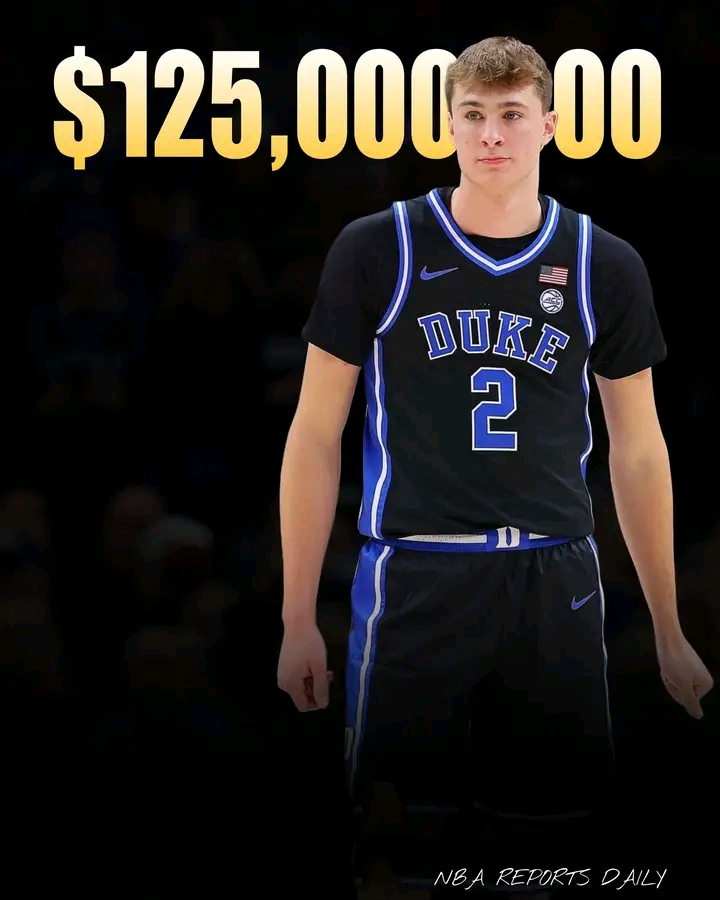In a shocking move, Cooper Flagg, the highly touted high school basketball phenom, has announced his decision to return to Duke University for another season. While this choice may thrill Blue Devils fans, it could come with a hefty price tag for Flagg himself – a potential loss of $75 million to $125 million in NBA salary.
According to estimates, Flagg’s decision to delay his entry into the NBA draft could significantly impact his earning potential in the league. By returning to Duke, Flagg would push back the start of his NBA service clock, affecting his eligibility for his second and third professional contracts. These deals are typically where players see significant salary increases, and Flagg’s delay could cost him dearly.
To put this figure into perspective, consider that the average NBA player salary is around $8 million per year. For a player of Flagg’s caliber, who is expected to be a top draft pick, his potential earnings could far exceed this average. By delaying his entry into the league, Flagg may be sacrificing a significant portion of his potential lifetime earnings.
Flagg’s decision to return to Duke is likely driven by his desire to continue developing his skills and competing for a national championship. While these goals are admirable, they come with a substantial financial cost. It remains to be seen whether Flagg’s gamble will pay off in the long run.
The NBA’s collective bargaining agreement (CBA) plays a significant role in Flagg’s decision. The CBA dictates that players must be at least 19 years old and one year removed from high school to be eligible for the draft. By returning to Duke, Flagg will satisfy this requirement, but he will also delay his entry into the league.
Flagg’s situation is not unprecedented. Other top prospects, such as Zion Williamson and RJ Barrett, have also chosen to attend college for a year before entering the NBA draft. However, the estimated financial cost of Flagg’s decision is particularly striking.
As Flagg navigates this critical juncture in his career, he must weigh the potential benefits of returning to Duke against the significant financial costs. While his decision may ultimately prove to be the right one for his development and happiness, it is undeniable that it comes with a hefty price tag.
The implications of Flagg’s decision extend beyond his individual circumstances. His choice may influence the decisions of other top prospects, who must consider the financial implications of their own choices. As the NCAA and NBA continue to evolve, the complex interplay between amateur and professional basketball will remain a topic of fascination and debate.
Ultimately, Cooper Flagg’s decision to return to Duke is a testament to his commitment to his craft and his desire to succeed at the highest level. While the financial costs of his choice are substantial, Flagg’s gamble may ultimately prove to be a wise investment in his future.





























